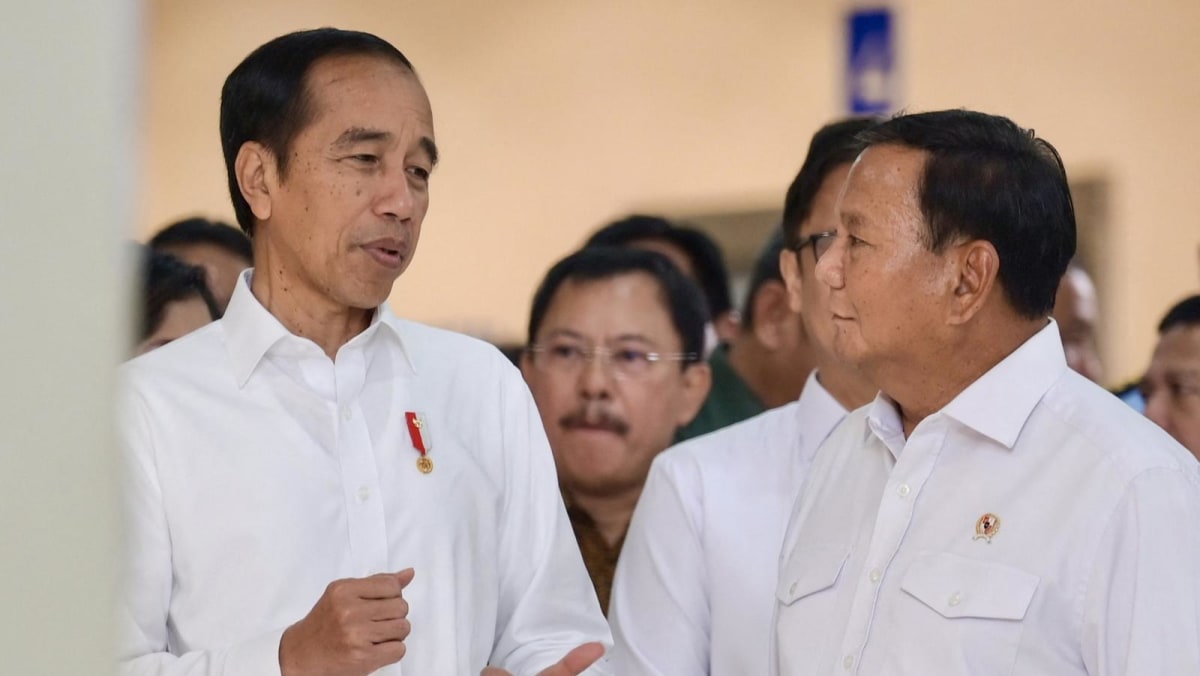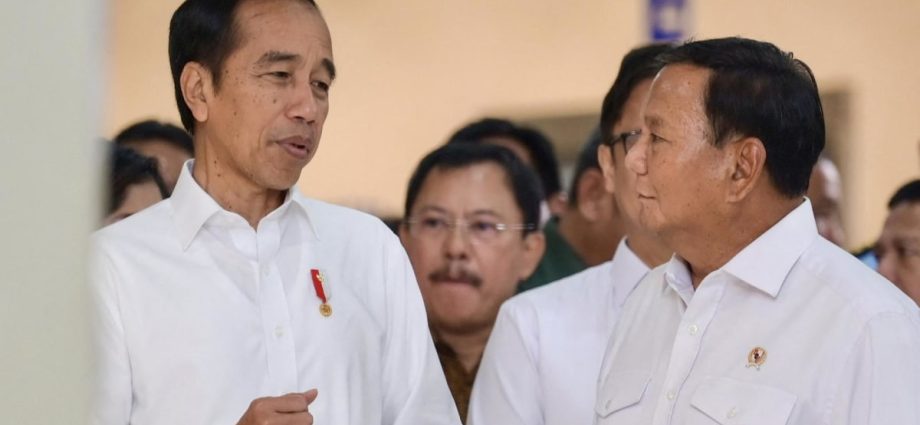
THWARTING A GRAND OPPOSITION COALITION
The president is clearly concerned about the threat of a parliamentary inquiry, locally known as Hak Angket, into alleged electoral fraud, said political analyst Dr Cecep Hidayat from the University of Indonesia.
Mr Ganjar and the ruling Indonesian Democratic Party of Struggle (PDIP) have called for an inquiry into alleged irregularities in the election. This inquiry, if pursued, would require the support of at least 25 members of the House of Representatives and more than one group of parties in parliament, as outlined in Law No. 17 of 2015.
A parliamentary inquiry could potentially lead to the impeachment of the president, precipitating political turmoil that might destabilise the outgoing administration and disrupt the smooth transition to Mr Prabowo’s presidency, Dr Cecep explained.
Echoing Dr Cecep, Dr Ujang Komarudin, a political expert from the University of Al Azhar Indonesia, said Mr Widodo cannot afford domestic political turmoil that might weaken the incoming administration.
As tensions remain high with PDIP matriarch Megawati Soekarnoputri, Dr Cecep observed Mr Widodo is lobbying Mr Paloh to prevent the formation of a united opposition front between Nasdem and Ms Megawati’s PDIP against Mr Prabowo.
Mr Widodo’s urgency in meeting with Mr Paloh was to preempt the media tycoon from engaging with Ms Megawati, said Mr Hendri Satrio, a leadership and political expert from Paramadina University.
Otherwise, “things could get messy for the president,” Mr Hendri said.
According to local media reports, Ms Megawati now plans to meet with former vice-president Jusuf Kalla, the political mentor of Mr Anies who also enjoys a close relationship with Mr Paloh.
Mr Widodo likely plans to maintain his political influence after leaving office – whether as kingmaker, by assuming an official role in the presidential advisory council, or within a political party, said Dr Ujang.
“He certainly won’t disappear from the political arena. His meeting with Mr Paloh positions him as a power broker to pave the way for Nasdem to enter Mr Prabowo’s coalition, underscoring his vested interest in ensuring the continuity of his policies and safeguarding his legacies,” noted Dr Ujang.
“Mr Widodo understands well that former presidents who have left the palace would lose their influence if they no longer hold political office or attempt to maintain their political leverage.”
Mr Prabowo’s coalition – made up of his Great Indonesia Movement Party (Gerindra), Golkar, Democratic Party, and National Mandate Party – is likely to command only 43 per cent of parliamentary seats, but the next government coalition would require a broad majority to ensure the political stability desired by Mr Widodo, Dr Ujang reckoned.
Indonesian political parties have a track record of post-election realignments in order to maintain their access to state patronage and resources.
In 2009 and 2014, losing party Golkar joined the winning coalition of PDIP. In 2019, Mr Prabowo’s Gerindra made the surprise move of joining Mr Widodo’s cabinet after its electoral defeat and a bruising presidential contest, showing how ideologically fluid the country’s political landscape is.
Dr Ujang said President Widodo recognises the challenges faced by Indonesian political parties outside the government. “Mr Widodo’s strategy aligns with Mr Prabowo’s desire to embrace all political parties including the losing ones, as articulated in his victory speech,” he added.

